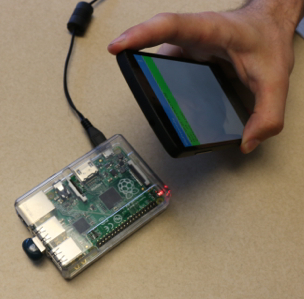
Hospitals and infections are a deadly combination. A small group on campus has created a computer-based application to reduce the spread of infection in clinical settings and potentially save lives. The technology uses wireless Bluetooth and cellphones to encourage proper hand hygiene.
“Hospitals require clinicians to wash hands before and after a patient encounter but there is no way to measure compliance,” said Omar Badreldin. The assistant professor of electrical engineering, along with students Duke Ayers, Ian Humphrey and Michael Albanese, designed the app and supporting software.
Badreldin said the primary goal of his invention is to raise awareness and reduce the spread of infection in hospitals. When his second child was born prematurely, he witnessed varying degrees of sanitation diligence among visitors to the neonatal intensive unit. “The biggest threat for survival of a neonatal patient is infection,” Badreldin said.
By measuring how often health care workers are using soap dispensers, hospital administrators could gain insights into the spread of infection. The app can anonymously measure use of sanitizers or keep track of individuals’ use and send reminders if a set amount of time has lapsed between hand washings.
The technology is simple: a mini-computer called Raspberry Pi, placed behind a sink or stand-alone dispenser, triggers the Bluetooth communication with workers’ cellphones, which send information to a database, showing workers washed their hands.
Working closely with his student team, Badreldin said the technology is nearly ready for use in a health care setting. The app works with Android operating systems and the group is working out the bugs on the IOS system, the technology used for iPhones.



